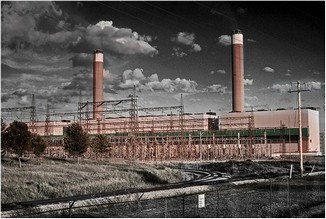 Wednesday, Canadian Environment Minister Jim Prentice announced his government’s most recent plan for eliminating CO2 emissions. The Canadian government hopes to phase out electrical generation by modern coal technology in favor of carbon capture and storage (CCS) — the much debated and as yet unproven “clean coal” concept — nuclear power, and other, renewable sources of energy.
Wednesday, Canadian Environment Minister Jim Prentice announced his government’s most recent plan for eliminating CO2 emissions. The Canadian government hopes to phase out electrical generation by modern coal technology in favor of carbon capture and storage (CCS) — the much debated and as yet unproven “clean coal” concept — nuclear power, and other, renewable sources of energy.
Prentice stated that plans would impose emissions caps on currently operating facilities and instate a market-based cap-and-trade system to allow utilities to purchase credits. Most coal-fired plants in Canada were built in the 1970s and will reach the end of their usable lifetimes between 2020 and 2025; the government hopes that these plants will then be replaced with alternate sources of energy generation. Their target is a 90% emission-free energy sector by the end of this period.
In the meantime, Canada, one of the lowest emitters of greenhouse gases among developed nations due to its established dependence on hydroelectricity and nuclear power, plans to test and install clean coal technology. This concept focuses on capturing greenhouse gases and then injecting them underground for permanent storage. Whether or not this technology will work and how expensive it will be are still up in the air.
 This plan is the latest in the current Conservative government’s revamping of their Liberal predecessors’ energy policy. They originally renounced their commitments under the Kyoto Accord and instead planned to allow their industries to increase emissions so long as they reduced the rates at which those emissions increased. In an abrupt about-face, Prentice announced their newest policy at a climate meeting held in Washington, D.C. He said these new regulations should be official before the November meeting in Copenhagen where representatives from around the world will negotiate a new international climate change treaty.
This plan is the latest in the current Conservative government’s revamping of their Liberal predecessors’ energy policy. They originally renounced their commitments under the Kyoto Accord and instead planned to allow their industries to increase emissions so long as they reduced the rates at which those emissions increased. In an abrupt about-face, Prentice announced their newest policy at a climate meeting held in Washington, D.C. He said these new regulations should be official before the November meeting in Copenhagen where representatives from around the world will negotiate a new international climate change treaty.
No doubt, more changes will be made before any policy becomes law. The extent of those changes will no doubt depend in part on the success and expense of the current clean coal projects being implemented. The coal industry itself seems cautiously optimistic about current plans, so we shall simply have to wait and see how their first steps into this controversial new technology fare.
Photo Credits: Dieseltheque and Jason6695 at flickr





